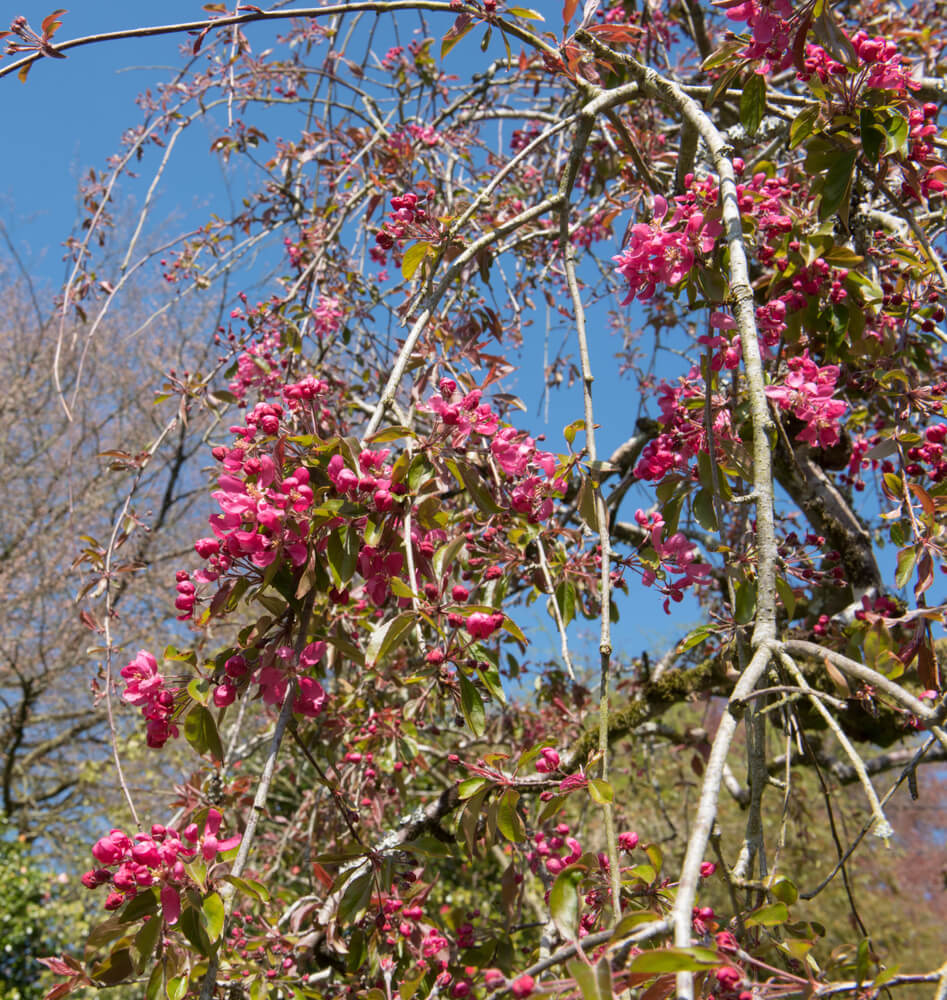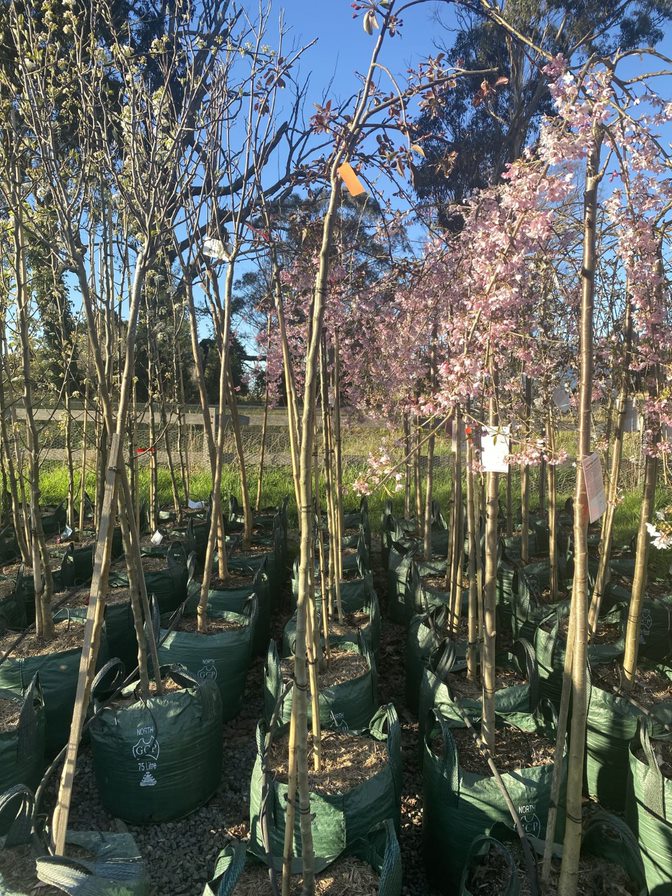Description
The genus Malus consists of about 35 species of deciduous trees and shrubs, native to Europe and Asia. They are known for their ornamental value, particularly their showy flowers, attractive foliage, and edible fruits. Here are some horticultural notes on the genus Malus:
Climate and soil requirements: Malus trees prefer a temperate climate with moderate to high rainfall. They grow best in well-draining, fertile soil, with a pH range of 6.0 to 7.5.
Light requirements: Malus trees prefer full sun to partial shade.
Watering: Malus trees require regular watering, especially during the first few years after planting. Once established, they are fairly drought tolerant.
Fertilization: Malus trees benefit from regular fertilization, especially during the growing season. A slow-release fertilizer with a balanced NPK ratio is recommended.
Pruning: Malus trees require regular pruning to maintain their shape and promote healthy growth. Dead or damaged branches should be removed as soon as possible. Pruning should be done in late winter or early spring, before new growth appears.
Propagation: Malus trees can be propagated by seed or cuttings. Propagation by grafting is the most common method and produces plants that are true to the parent.
Pests and diseases: Malus trees are relatively pest and disease resistant, but may occasionally be affected by aphids, apple maggots, and fungal diseases such as fire blight. Regular inspection and treatment can help prevent and control these issues.
Landscape use: Malus trees are popular ornamental trees and are commonly used in temperate landscapes, parks, and gardens. They provide attractive, often elliptic leaves in shades of green or variegated, and showy, fragrant flowers in shades of pink or white. They can be used as specimen trees, in mixed borders, or as a shade tree, and their edible fruits are also a popular feature, particularly in the case of cultivated apple varieties. In addition, some species of Malus have medicinal value and are used in traditional medicine to treat various ailments.



